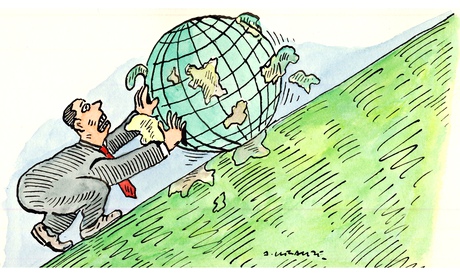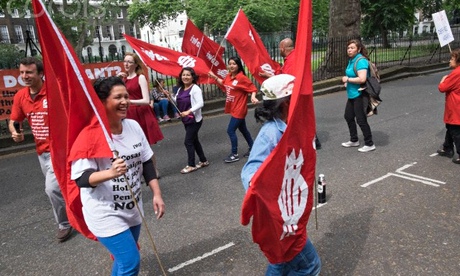Dr Ishtiaq Ahmed in The Friday Times concludes his series on the partition of India, Punjab and Bengal
My point of departure in this series has been that the partition of India was not necessarily the best option for solving the so-called Hindu-Muslim problem. A secular-democratic state based on universal adult franchise and regional autonomy would have served well to integrate the different peoples and communities constituting the Indian ethno-cultural mosaic into a grand nation. The Muslims would have had as much a stake in it as any other religious community. Permanent Hindu domination through the Congress Party or “Islam being in danger” was not possible if one keeps in mind the demographic composition of the population of the subcontinent and the fact that the Muslims were concentrated in two strategic regions – the north-west and north-east of India. Even when the Muslim presence in India has gone down by two-third the 180 million who remain in India are too important a group for an electoral democracy to ignore. Only once did the BJP come to power with a massive mandate on patently anti-Muslim propaganda. That was in 1998 but Mr Atal Behari Vajpayee quickly realized that such a campaign cannot be repeated without India being plunged into anarchy and chaos with terrorism and civil war emanating as a result.
Number plates of many cars in Pakistan now bear the name “Al Bakistan”
The Muslims were, however, economically not at par with Hindus and Sikhs during the colonial period and that was the strongest reason for creating a separate Pakistan. I have explained in my earlier articles how and why it happened that the Muslims lagged behind others and there is no point repeating the explanation here again. Suffice it to say that many contemporary Muslims have a serious problem adjusting and working within the modern economy and democracy that exists universally. Even now when colonialism (at least not in the literal sense) and all other excuses are no longer applicable no Muslim nation has excelled as an economic power or as a democracy. Islamic banks and Islamic economy are not very different from what banking generally is all about, and Turkey which Ataturk saved from medievalism is slowly being encroached upon by the Islamists – at the moment only in small ways but we know how small, apparently harmless things suddenly become a major force, converting from a nuisance to a menace and then finally a scourge.

Sealing the deal
There is no doubt in my mind that Mr Jinnah never wanted to create an Islamic state based on either the Iranian or Saudi model. However, I believe once the decision to use Islam to rouse mass passion was taken and the ulema given a free hand to propagate their vision of an Islamic state in which Sharia laws would reign supreme, and through this the foundations of a confessional Muslim state laid. I have given ample proof of it in a long chapter, ‘Punjab Elections and Coalition Government, 1945-46’ in my book, The Punjab Bloodied, Partitioned and Cleansed (Karachi: Oxford University Press, 2012: 73-106). The ulema and pirs told the Muslims that if they did not vote for the Muslim League their nikah (marriage) would become null and void and they would be refused an Islamic burial. They also told the Hindus and Sikhs that in such a state they would have to come to the mosque with their disputes and Islamic law would apply. It proved to be a spectacularly successful mobilizing ideology and campaign, but once Pakistan had been achieved a utopian vision laced with Islamic symbolism, values and aspirations were part of the collective consciousness of Pakistani Muslims. Once you create a particular mindset it assumes a life of its own. It may hibernate and remain dormant but comes back to life whenever conditions are ripe. Its latest manifestation is that number plates of many cars in Pakistan now bear the name “Al Bakistan”, which upon enquiry I found to my complete shock is because in Arabic there is no ‘p’ sound and the closest to it is the ‘b’ sound: hence we are now in transit from Pakistan to Al-Bakistan. These decorative changes are actually symptomatic of a deep identity crisis. Much worse are the target killings which go on and life in Peshawar and Karachi has been made expendable as Christians, Shias, Ahmadis and from time to time Barelvis are brutally killed.
The late General Zia was an avid watcher of Indian films
Nations have to make a complete about turn if they want to rid themselves of such characteristics. Nazism, fascism and Japanese militarism went away only after overwhelming defeat was inflicted upon them. On the other hand, South Africa could make the transition because the leadership of the white minority realized that it had no future in a world where racism was no longer acceptable. Israel remains the last bastion of white colonial domination in the occupied territories, but many Israelis know that occupation and domination of a defeated people in the long run is not sustainable. Shall we in Pakistan begin thinking how to turn the corner and become a normal state?
Returning to the partition and the deep wounds and scars it inflicted, when the Muslims of East Punjab and the Hindus and Sikhs of West Punjab crossed the international border in 1947 and religious cleansing had been completed on both sides there was no doubt left that Pakistan was a state of the Muslims. From Khyber-Pakthunkhwa too all Hindus and Sikh had to flee. Of the 29 per cent Hindu population of Sindh only a fraction remained behind. In Balochistan too, a handful could remain. Mr Jinnah’s speech of 11 August 1947 could not have reversed the underlying rationale of the Two-Nation Theory. He did have a vast following in Pakistan, but amongst them not more than a handful believed that Pakistan had to be created to establish two secular states in the subcontinent instead of one.
For Pakistan to switch from religious nationalism to civic nationalism was never going to be easy. With Jinnah dying soon after he founded Pakistan it will always be a matter of speculation as to what would have happened if he had lived longer. He ridiculed the suggestion that his 11 August 1947 speech was about a secular state. His basic argument was that Islam was democratic and democracy was in the blood of Muslims. From the point of view of most ulema and let me say honestly, most Muslims, the ideal state is one where the legendary first four caliphs of Islam ruled. But it was not a secular state by any stretch of the imagination, even when good government and chaste and honest leadership were provided by the pious caliphs.
Perhaps, even more importantly, the social or class basis for a secular state in Pakistan was too weak. The Muslim landlords were the main support base of the Muslim League in the UP and after 1944 in the Punjab. If we now add the powerful ulema of the Barelvi persuasion and the pirs to the Muslim League support base, then both democracy and secularism hold little or no attraction for them. One only has to remember that when in the early 1950s Mian Iftikharuddin and Mian Mumtaz Daultana tried to carry out land reform they were rejected by their colleagues in the Muslim League. In Sindh, the dissenting note penned by Masud Khaddarposh on the Sindh Hari Report (which spoke of the Waderas (landlords) as the protectors of the Haaris (tenant- cultivators and landless peasants)), resulted in him being accused of being a communist and an atheist. Ironically, but not at all surprisingly, both Maulana Maududi and the head of the Ahmadiyya Jamaat, Mirza Bashiruddin Mahmud Ahmad came out in favour of landlordism.
The late General Zia was an avid watcher of Indian films
It was Field Marshall Ayub Khan who could muster enough authority to carry out a land reform, which aimed at creating a strong class of commercial farmers instead of absentee landlords. Mr Bhutto’s land reforms did not achieve any great success because he secured a ruling that in Islam ownership of property was individual. Through such a subterfuge the landlords retained most of their land given by the British to their ancestors. In Sindh where the biggest landholdings existed, the reforms were even less effective. Because of the Islamic law of inheritance those holdings are shrinking but the landlord class remains powerful locally and this can be easily established by looking at the membership of the Pakistani legislatures. Even in India the land reforms were not all that radical but they were much better than what we could achieve in Pakistan. Far more people from humbler backgrounds are elected to the Indian legislatures. To cut a long story short, history, ideology, culture, class – all were poised against Pakistan becoming a secular-democratic state. In my book, The Concept of an Islamic State in Pakistan: An Analysis of Ideological Controversies (Lahore: Vanguard, no date given but 1991 or 1992), I had written:
Pakistan meant different things to different people. To the landlords it meant continued leadership; to the doctrinal-minded Muslims, a unique opportunity to create an Islamic state in the light of their ideas; to the Muslim intelligentsia and the poorer classes, a state where social and economic justice would prevail and their dignity established according to Iqbalite teachings; to the peasants, freedom from the yoke of the Hindu money-lender; to the regional leaders, greater autonomy than was expected in a united India dominated by the Congress; to the Muslim bourgeoisie, the necessary environment where they could develop their potential, which seemed choked in a united India due to the many times greater strength of Hindu and Parsee capital based in Bombay and Calcutta; to the bureaucrats and the military an excellent opportunity to secure quick promotions; and to the military establishment it brought a central role in a country where the civilian political process was dependent from the beginning upon its support and active participation (page 80-81).

Mountbatten. In the background a countdown calendar to the transfer of power
These lines were written in 1984 for my doctoral dissertation. At that time I had no clue that Great Britain or rather the British military was another stakeholder in the Pakistan state project, and it is with its cooperation that the Muslim League succeeded in bringing about the partition of India. I have now provided proof of it by quoting verbatim from the horse’s mouth. No doubt the Congress Party and the Sikhs retaliated by demanding the partitions of Bengal and Punjab. Did any of the main leaders understand really that havoc would be wreaked upon millions of millions of innocent people whether Hindu, Muslim or Sikh? I don’t think fully but they could not have been completely unaware of the consequences a disputed division of India, Bengal and Punjab would entail. However, if the British military had stuck to its assessment of 11 May 1946 that a united India served their purpose better, notwithstanding Nehru’s anti-imperialism, history would have taken a very different direction. Therefore there was nothing inevitable about the partition, but it happened. And now we need to show maturity and accept the facts.
I toured India recently and spoke to many audiences. I got the distinct feeling that nobody wants Pakistan to merge into India. In fact rightwing Hindus are quite pleased India was partitioned. Equally, in Pakistan there is no will or desire to amalgamate into India. However, culturally, historically, and geographically the truth is: “There is an Indian in every Pakistani and a Pakistani in every Indian”. Ex-president Asif Ali Zardari made this fantastic remark and it is true. Culture unites but politics divides. Here I am using culture as a much larger concept than religion. Music, poetry, food, so many habits and hang-ups, prejudices and aspirations are the same. The Lahore film industry and film industries elsewhere in pre-partition India attracted talent from all religions and regions and the beauty they created was shared by all and sundry. The late General Zia was an avid watcher of Indian films and could sing as well. His most famous protégé Prime Minister Nawaz Sharif is also a film buff yet both were keen to pander to the most reactionary Islamic constituencies and our only successful Islamic socialist, ZA Bhutto initiated Islamic measures that paved the way for General Zia’s comprehensive Islamization measures.

Split into two
In 1947, we missed a great opportunity to build together a progressive, secular and democratic united India. I am afraid that in 2013 we may miss a great opportunity to claim our right and share in economic development by not whole-heartedly taking part in converting South Asia into a zone of peace and prosperity through trade and commerce. We should not be a nation which specializes in missing opportunities. I do not for a moment doubt that in India too there are powerful forces, which do not want the people of these two nations to live in peace, trust and solidarity. Defeating them is the responsibility of Indian humanists, Gandhians, pacifists, internationalists, Marxists, South Asianists and just good people from all religions and indeed poets and writers and others. Pakistani peace lovers of similar varieties have to do the same. India and Pakistan can through SAARC build a bright future for their people.
The partition of India, Bengal and Punjab is not the only partition which has bequeathed a bitter legacy of territorial disputes and forced migrations and so on. After WW I the map of the Middle East was redrawn and when the mandates ended it looked very different from what existed when the Ottoman Empire was the ruling power in that region. The creation of Israel is a case in point. However, I am always willing to accept that reality, provided the Israelis agree to accept an independent and sovereign Palestinian state next to it. In Africa particularly colonization and decolonization took a very heavy toll of life as tribes and clans were divided and new states came into being. So, two or three states emerging instead of one on the Indian subcontinent is not all that strange.
Yet I am convinced British colonialism laid the foundations of modern society in the colonies. The railways, telegraph system, roads, bridges, and modern ideas of the rule of law and overall peace and stability were its outstanding contributions. Indian had stagnated since many centuries and oriental despotism prevailed all around. The British came with a more advanced civilization but they had to go because modern consciousness rejected foreign rule. Once upon a time that was not a problem. The truth is that the Congress Party’s claim to represent all Indians was an overstatement. Till the end large numbers of Indians, of all religions and of many regions, remained loyal to the British. There is a school of thought which believes that we would have been better off as a British Dominion than as two independent states.
The truth is that the British were not planning to grant independence to either a united India or a divided one, but WW II broke the back of the Raj and US pressure to grant independence to this region became irresistible. The salaries of the British military were being paid by the Americans and in the new world order there was no scope for colonies. The Cold War however polarized the world and instead of colonies a system of dependent or neo-colonial/post-colonial states came into being in which instead of direct rule by an imperial power the system of control was through economic and military pacts. India successfully kept out of it but we could not. I have explained fully why this happened in my latest book, Pakistan: The Garrison State – Origins, Evolution, Consequences (1947-2011), (Karachi: Oxford University Press, 2013).












